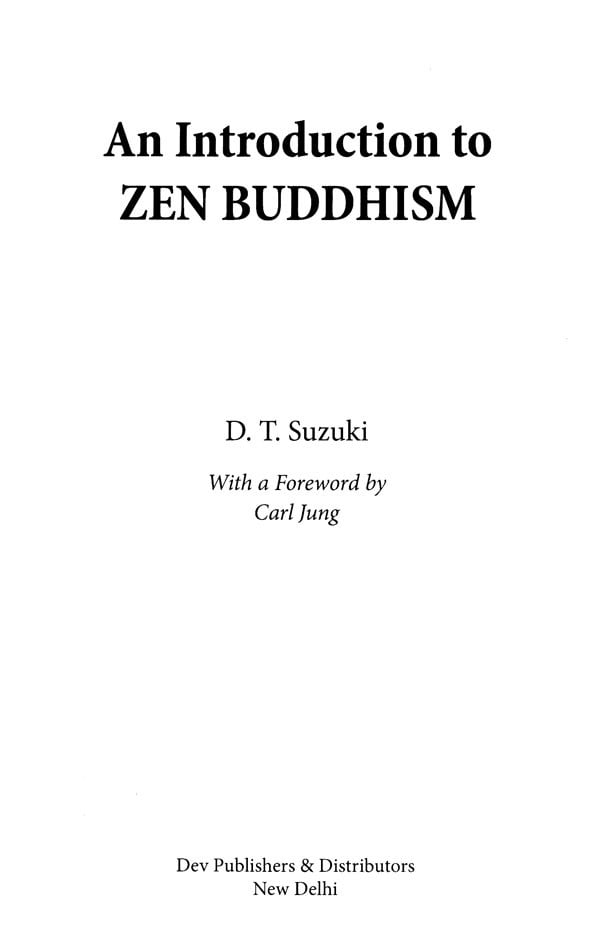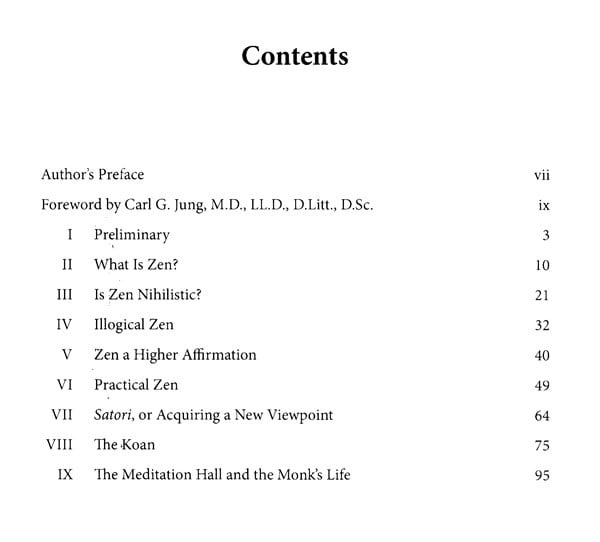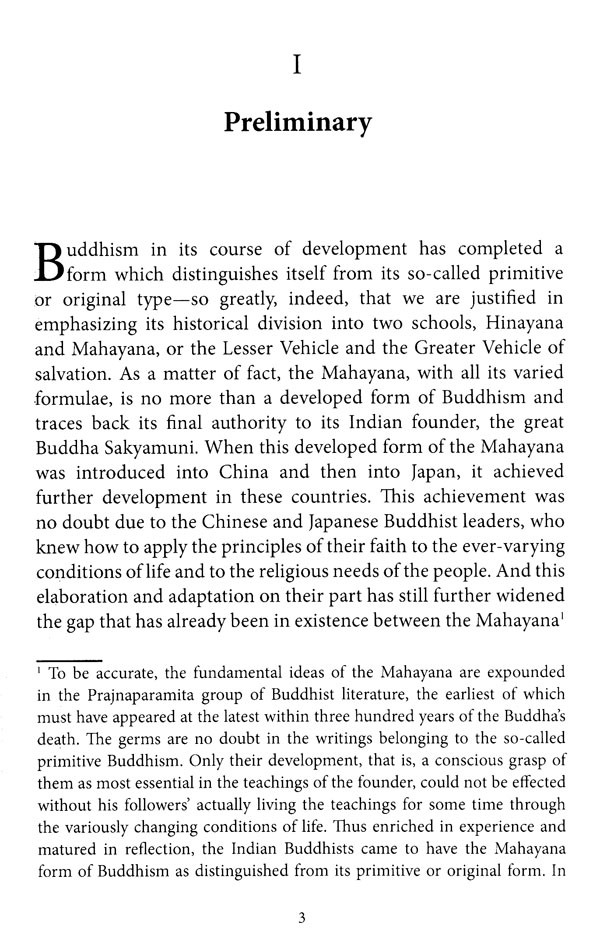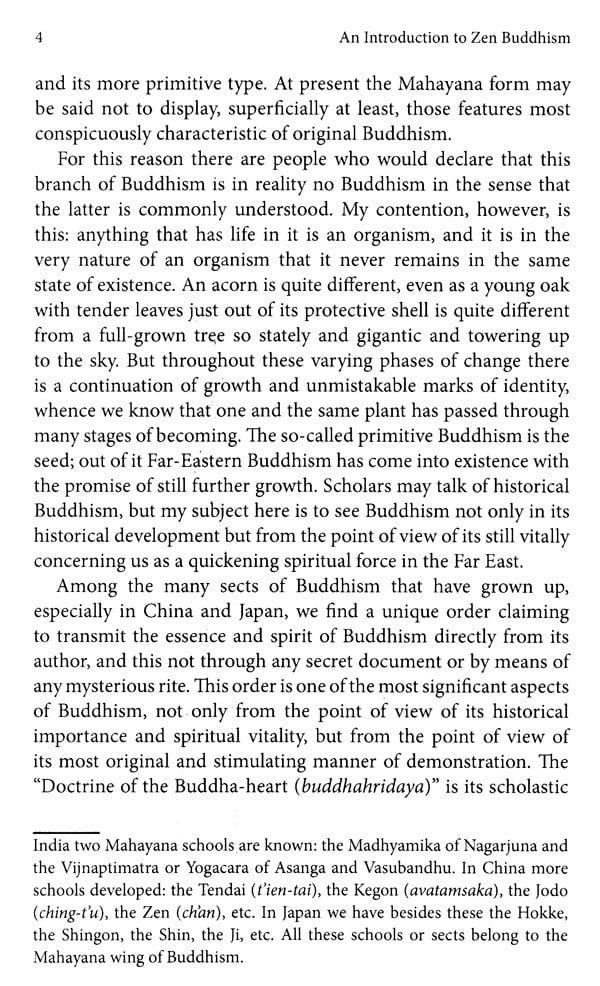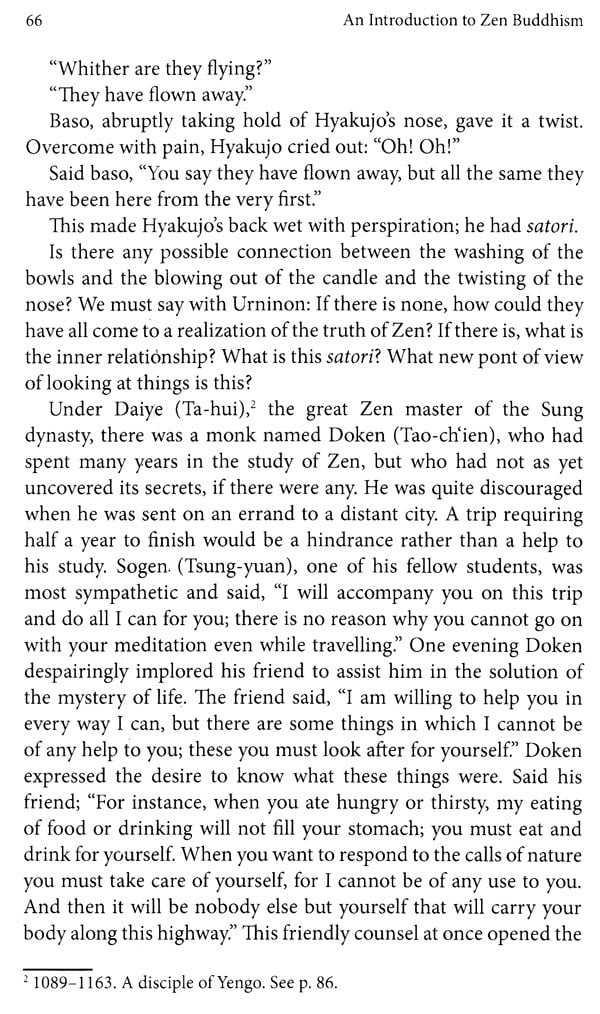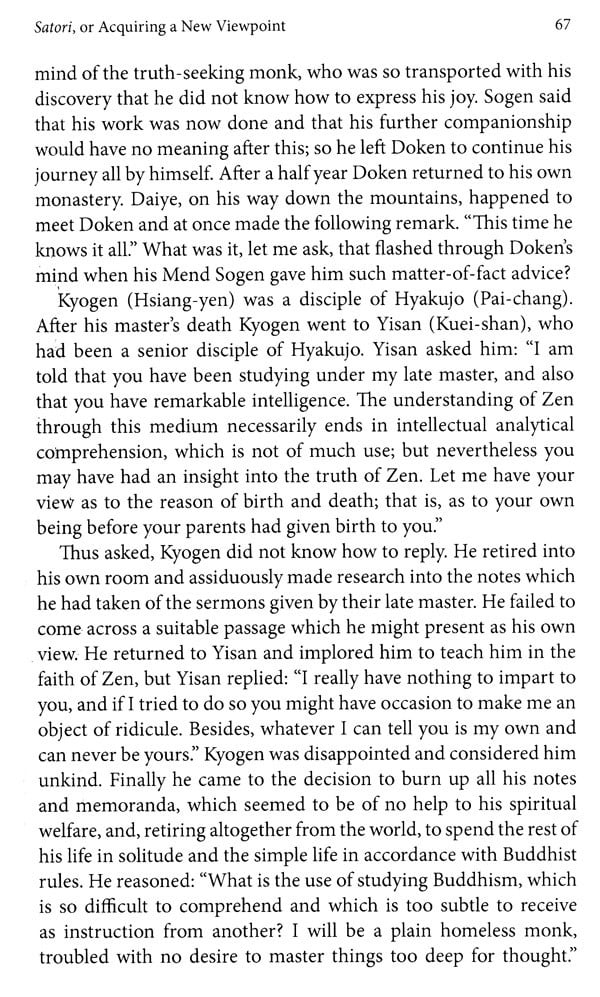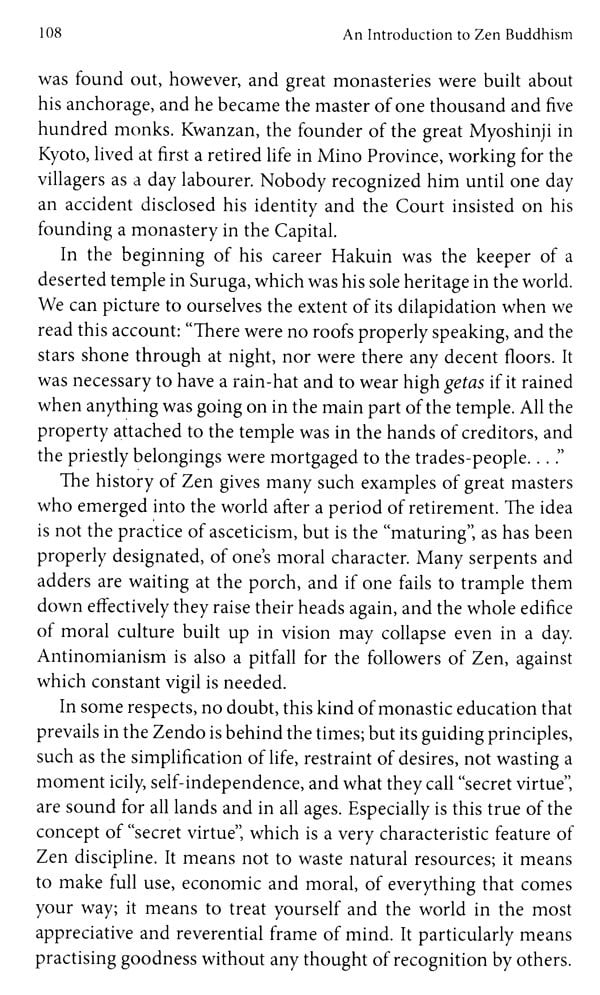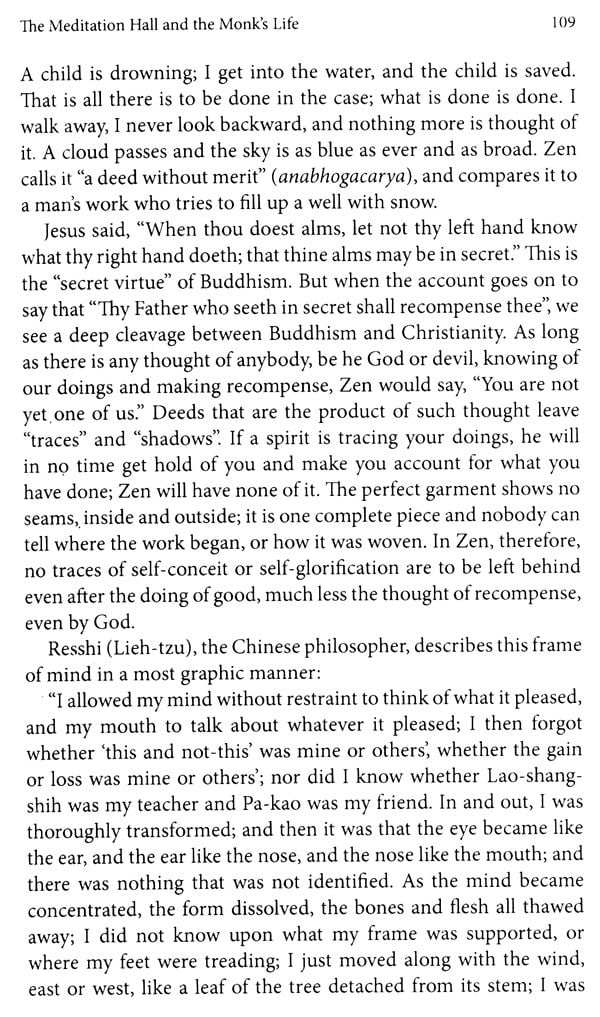About the Book D. T. Suzuki's works on Zen Buddhism are among the best contributions to the knowledge of living Buddhism that recent decades have produced, and Zen itself is the most important fruit that has sprung from that tree whose roots are the collections of the Pali-Canon.
The author has written the book in an easy and simple manner keeping in mind the general audience so the book can serve as a general introduction to Zen Buddhism, and leads the reader to his other works.
About the Author Daisetsu Teitaro Suzuki was a well known Buddhist scholar, known for his important publications on Zen Buddhism. He was a professor at Otani University, Japan and was nominated for the Nobel Peace Prize in 1963.
Foreword Daisetz Teitaro Suzuki's works on Zen Buddhism are among Da the best contributions to the knowledge of living Buddhism that recent decades have produced, and Zen itself is the most important fruit that has sprung from that tree whose roots are the collections of the Pali-Canon.' We cannot be sufficiently grateful to the author, first for the fact of his having brought Zen closer to Western understanding, and secondly for the manner in which he has achieved this task. Oriental religious conceptions are usually so very different from our Western ones that even the very translation of the words brings one up against the greatest difficulties, quite apart from the meaning of the ideas exposed, which under certain circumstances are better left untranslated. I have only to mention the Chinese "Tao", which no European translation has yet achieved. The original Buddhist writings themselves contain views and ideas which are more or less inassimilable by the average Western understanding. I do not know, for example, just what spiritual (or perhaps climatic?) background or preparation is necessary before one can deduce any completely clear idea from the Buddhist Kamma. In spite of all that we know about the essence of Zen, here too there is the question of a central perception of unsurpassed singularity.
Preface The articles collected here were originally written for the New T East, which was published in Japan during the 1914 War under the editorship of Mr. Robertson Scott. The editor suggested publishing them in book form, but I did not feel like doing so at that time. Later, they were made the basis of the First Series of my Zen Essays (1927), which, therefore, naturally cover more or less the same ground.
Recently, the idea came to me that the old papers might be after all reprinted in book form. The reason is that my Zen Essays is too heavy for those who wish to have just a little preliminary knowledge of Zen. Will not, therefore, what may be regarded as an introductory work be welcomed by some of my foreign friends?
With this in view I have gone over the entire manuscript, and whatever inaccuracies I have come across in regard to diction as well as the material used have been corrected. While there are quite a few points I would like to see now expressed somewhat differently, I have left them as they stand, because their revision inevitably involves the recasting of the entire context. So long as they are not misrepresenting, they may remain as they were written.
If the book really serves as a sort of introduction to Zen Buddhism, and leads the reader up to the study of my other works, the object is attained. No claim is made here for a scholarly treatment of the subject matter.
The companion book, Manual of Zen Buddhism, is recommen ded to be used with this Introduction.
**Contents and Sample Pages**
